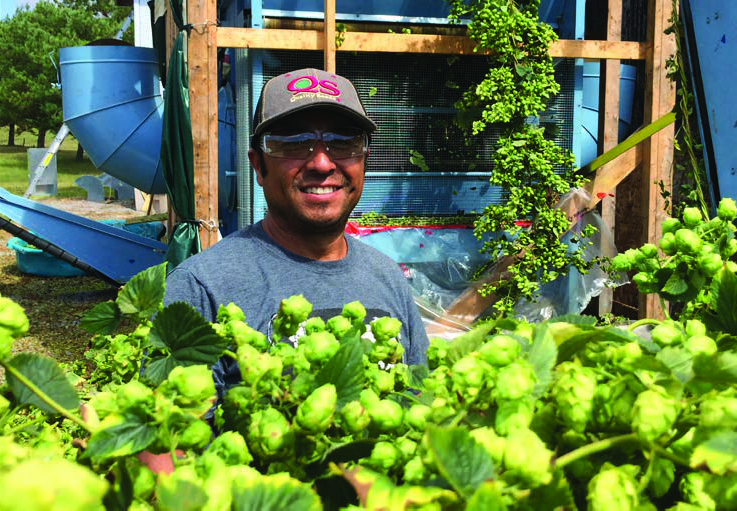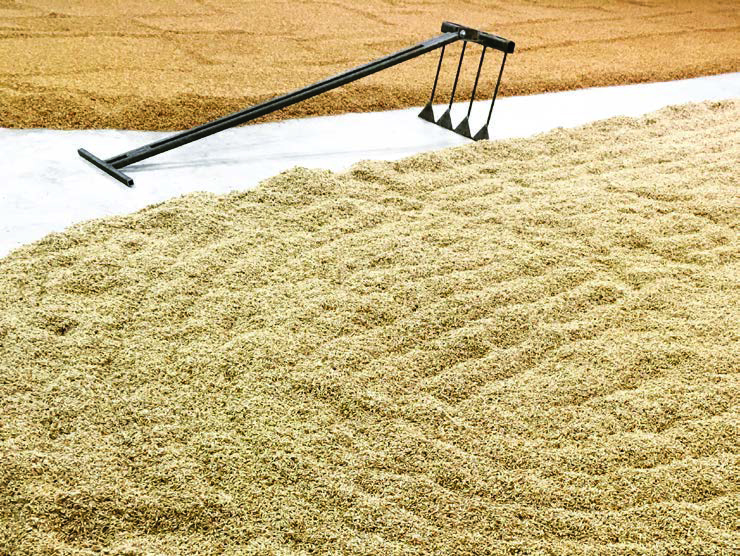Brewed Awakenings: Good Things Grow Here

This article originally appeared in the Spring 2022 print issue of Quench Magazine
Good Things Grow Here
IT’S A KNOWN FACT THAT THE PAST DECADE HAS BEEN A TREMENDOUS TIME OF GROWTH FOR THE CANADIAN BEER INDUSTRY.
In just a short amount of time we’ve gone from an emerging market that was roughly five years behind the American craft scene to releasing beers that are truly world class, proving themselves a cut above the rest by finding success in international competitions such as the World Beer Awards.
There’s also been a more literal form of growth to be found in the agricultural landscape of where we get ingredients. Now, it is true that the majority of the country’s barley is grown in Western Canada, and massive malting operations like Canada Malting have often been considered the standard for Canadian-grown malts for beer. But, over the past five or six years we’ve since learned that not only is quality barley grown in provinces outside of the west, there are also smaller malting operations bringing forth a high-quality product that’s better than what has typically been available.
Even better, more breweries are realizing that other ingredients for beer can be rather easily sourced from within the country. To get hops that appeal to North American tastes, for instance, Yakima, Washington has often been the popular place to go. In the last few years, however, hop farms like Maple Bay Hop Farm in B.C. and Pleasant Valley Hops in Ontario have been growing and working hard for years to bring forth a superior local product that works with the terroir and makes some damned fine beer. If you’ve ever enjoyed the beers from Ontario breweries Matron Fine Beer, Muskoka Brewery, or Parson’s Brewing, chances are good you’ve tasted Pleasant Valley Hops and enjoyed them.

Even yeast, which often had to be shipped in from other countries or shared among brewers, is now cultivated in Canada by the incredible minds over at Escarpment Labs. With their wide selection of yeasts that touch on a variety of exciting styles (including some limited edition releases) they have made the commercial brewing and home-brewing scenes all the better for their presence.
Returning to malt, though, I like using MacKinnon Brothers Brewing out of Bath, Ontario as an example. Situated on the family farm, which has been operating for over 200 years, the current generation made it a brewery farm, growing their own barley and hops to use in their beer. To malt their barley they turn to Barn Owl Malt in Belleville, run by husband and wife team Devin and Leslie Huffman, who work frequently with small Ontario barley farmers. Using the historical method of floor malting, in which the steeped grain is spread out on a clean, flat concrete floor and allowed to germinate over a four to five day period before moving to the kiln for malting, the results are a malt that is just unparalleled in quality. Is the method rather labour intensive? Well, sure, but it’s a method that allows for a closer interaction with the process that you just can’t get with automated systems, so it’s more than worth it.
The results show in the beer that MacKinnon Brothers make. While all of their beers are fantastic, the brand that shows off the biggest difference between house-grown and small batch malt is the annual release of their Harvest Ale, which makes a point in showcasing the malt and underlining the differences each season can bring to the final product. Somewhat bready, with a mild toasted note, the beer is always a treat when it arrives in Autumn.
With all the hype it gets, many people can forget that beer itself is an agricultural product and the crops we grow are a part of our national identity. Drinking a 100% Canadian beer, particularly one with small batch ingredients, is a bit more than a marketing stunt. While some might not think too much about it in regards to taste, having a deeper connection to our home is something worth raising a glass to.
